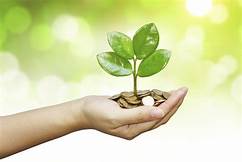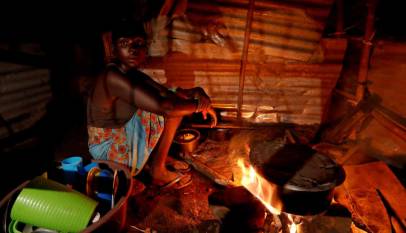OP-ED | World Environment Day 2019: A green charity for the celebration of Eid al-Fitr, By Ahmad Shuaibu
“There is none amongst you, who plants a tree or sows seeds, and then a bird, or a person or an animal eats from it, but is regarded as a charitable gift for him.” – Sahih al-Bukhari 2320, Book 41, Hadith 1 Vol. 3, Book 39, Hadith 513

On the 5th of June, 2019 (which is equivalent to the 2nd day of the month of Shawwal, 1440AH in the Islamic Calendar), the world celebrated the World Environment Day; for Muslims around the globe, the day was the second day of Eid al-Fitr, which marked the end of the holy month of Ramadan.
Eid al-Fitr is an important celebration for the Muslim faithful during which all forms of charity, including visit to relatives, friends and associates, are encouraged. As the famous South African Islamic nasheed singer-songwriter sang: “All over the world, under the big-blue sky Muslims unite to worship Allah…It’s a time of brotherhood, a time of peace…”
In a nutshell, the Eid celebration urges the faithful to give love and receive love. Fortunately, the second day of this year’s Eid al-Fitr coincides with the United Nations World Environment Day (WED) for 2019: a day set aside to encourage awareness and action to safeguard mother earth. This year’s theme is ‘Beat Air Pollution’ and the host country is China.
People are encouraged to make a commitment towards saving the planet by planting trees, cleaning up the environment or commuting in a way that do not pollute the environment. People are also encouraged to tag at least three people on social media and challenge them to do same as well as post a picture of themselves fulfilling their own commitment.
Personally, in commemoration of this year’s WED, I made a resolution to plant trees and create more green spaces. As a Global Shaper, I made a commitment to improve the state of my community, Kano, which is Nigeria’s second most populous city with an estimated population of about 14 million. The commercial and industrial activities of Kano take a huge toll on the environment.
For instance, even though there is no reliable data on the number of commercial tricycles shuttling across the length and breadth of Kano metropolis, a Kano tricycle dealer once estimated there could be one tricycle to every three persons in Kano metropolis. Meaning, there could be roughly about four to five million tricycles in Kano. This is not to even talk of the millions of motor vehicles and motorbikes in Kano.
Moreover, there exist electric power generators in many commercial and residential buildings in Kano. Firewood and charcoal made from fell down trees are still huge business around Kano. Hence, there is no doubt that the air in Kano – northern Nigeria’s commercial nerve center – is filled with burned solid fuels.
Anthropogenic activities are hugely increasing our greenhouse emissions, thereby contributing to the rise in the average temperature. This year, Kano’s temperature reached an unprecedented 42 degrees Celsius; some believe it went higher. Therefore, it’s no brainer that we are producing a high amount of carbon, with less proportionate vegetation to offset our carbon footprint; this is definitely not healthy for the ecosystem.
In the spirit of Eid celebration (which encourages acts of charity) and the World Environment Day (which encourages us to protect the environment by creating green spaces), I thought of one of the best charitable actions one can do to impact people’s lives; hence my decision to plant trees.
I have made a commitment to fight air pollution and save the environment by planting trees. I have made a commitment to carryout green charity for humanity – you can also do the same. Could there be a better charity than doing something for the habitat, something for humanity, something to save the environment. This charity, a green charity for Eid al-fitr, will live on for years!
Ahmad Shuaibu is the curator of the Kano Hub of the World Economic Forum’s Global Shapers Community. The views expressed in this article are those of the author alone and do not necessarily represent those of the Global Shapers Community nor reflect the editorial policy of African Newspage.











